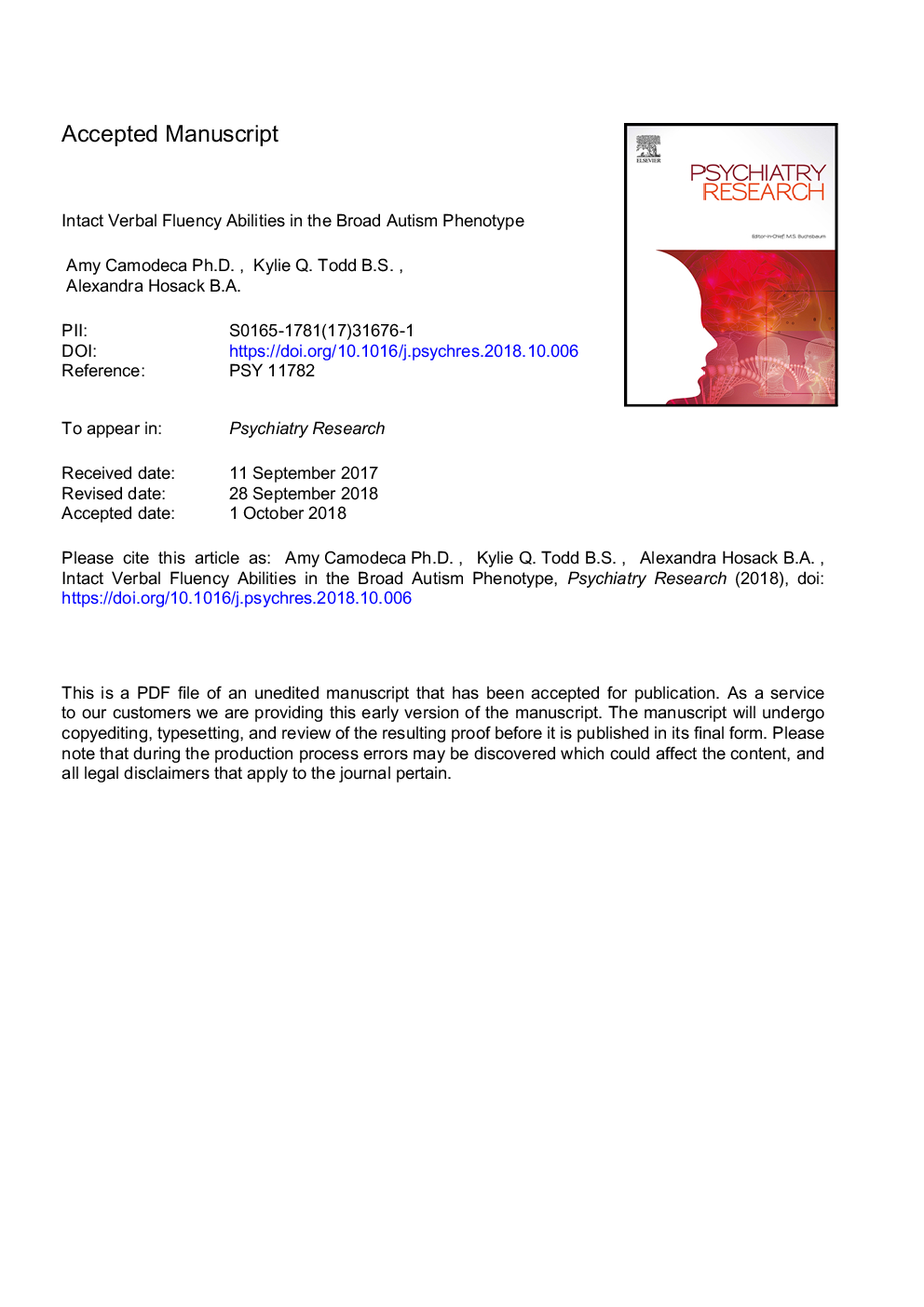| Article ID | Journal | Published Year | Pages | File Type |
|---|---|---|---|---|
| 11024110 | Psychiatry Research | 2018 | 47 Pages |
Abstract
This study attempted to replicate the findings of Camodeca and Voelker (2016), who demonstrated that controlled processing weaknesses were evident in the Broad Autism Phenotype (BAP), and that these weaknesses were predictive of real-world pragmatic language problems. One hundred eighty-two undergraduates completed the Delis-Kaplan Executive Function System Verbal Fluency (D-KEFS-VF) test and the Broad Autism Phenotype Questionnaire (BAPQ). Results were partially replicated. Contrary to the previous study, the BAP group (nâ¯=â¯31) did not demonstrate comparative weaknesses in controlled processing, nor were controlled processing abilities predictive of BAPQ Pragmatic Language score. Similar to the previous study, controlled processing did not predict pragmatic language abilities for Non-BAP (nâ¯=â¯151) subjects. For each group, letter fluency score predicted 2nd 15â³ interval score (controlled processing abilities); automatic processing (1st 15â³ interval) did not. Results suggest that verbal fluency skills in the BAP are similar to controls, and that controlled processing does not account for significant variance in real-world social language in the BAP.
Related Topics
Life Sciences
Neuroscience
Biological Psychiatry
Authors
Amy Camodeca, Kylie Q. Todd, Alexandra Hosack,
